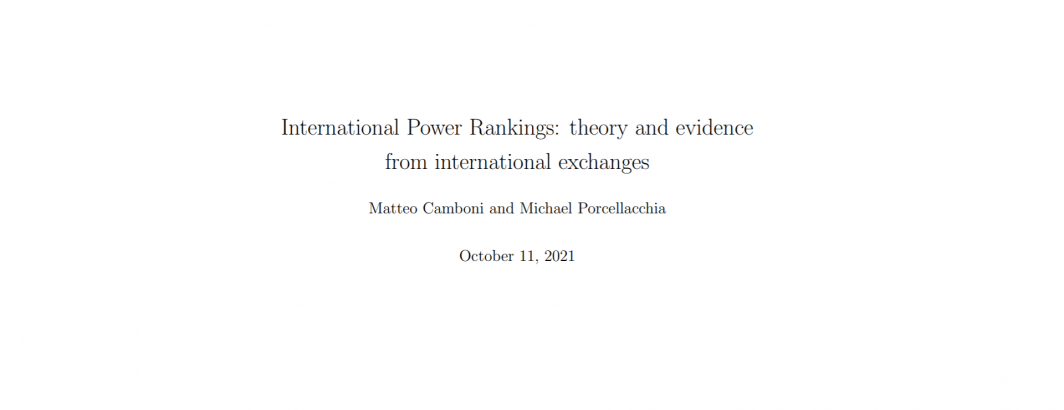
This exploration by Matteo Camboni and Michael Porcellacchia examines power rankings leveraging data from GDELT:
Throughout history, countries competed with one another to shape the international system in their favor, creating a link between international exchanges and how power is distributed among the different foreign actors. We show that, for each country, this link can be summarized by a simple function of the distribution of power: its Power Rank Index (PRI), i.e. the share of power held by all weaker foreign actors. Focusing on specific types of exchanges, our theory predicts that when a country’s PRI increases, the country should trade more, conclude more economic and military deals, have better diplomatic and political relations, and send more economic and military aid. Testing each of these predictions with bilateral trade data (CEPII, 1949-2019) and bilateral data on international interactions (GDELT, 1979-2012), we find support for the theory and show the strong predictive power of the PRI. Finally, we assess the external validity of the theory discussing how it can shed light on some puzzling patterns of international relations, including Thucydides’ Trap.